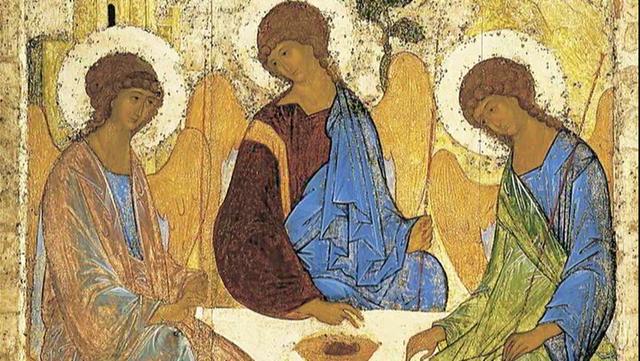 And we're back!
And we're back!
After a long (and fruitful) hiatus, I think I've figured out the core vision of the school.
To catch everyone up: I've been finding that answering the question, "so, what kind of school will this be?" hopelessly impossible. We have three hundred ideas for the school, and they've all been jumbled together in importance: Expertise can be built! A school for human flourishing! Food! And have I told you about Big History?!
…and so on.
Some time ago I figured that interested listeners could probably hear three ideas before they just started nodding politely. Thus I began hunting for three overriding ideas — three words — that will capture what it is we're trying to do. I went looking for our Trinity.
I've found 'em, I think. They're below. Without any further ado:
Love. Mastery. Wisdom.
Now, in the eternal words of Ricky Ricardo, I have some 'splainin to do. I'll deal with love today, and walk through the rest in posts to come.
Love
As Kieran Egan says, "everything in the world is wonderful, but... schools are designed almost to disguise this slightly shameful fact. We represent the world to children as mostly known and rather dull. The opposite is the case: we are surrounded by mystery, and what we know is fascinating."
Everything — perhaps with some trivial exceptions — is interesting. Wonderful, even: one of the glories of having a human mind (as, say, opposed to a hyena's) is that we're equipped with the cognitive aramentarium necessary to appreciate and unravel the deep complexity of everything around us. The primary pedagogical task is to capture the marvel inside every topic being studied (photosynthesis, the multiplication tables, what a mailman does…) and to bring students into contact with it.
To put that a different way: the primary educational task is for the teacher to fall in love with a topic, and then to help students fall in love with it, too.
I'm using somewhat simplified language here — "love" is too narrow to perfectly identify student feelings. (Sometimes students will hate a topic — and will be justified in that hatred. Studying the Roman Empire, for example, should bring about a symphony of human emotions.)
But love is a great place to start. And it's here that Imaginative Education (IE) really comes into play.
(For those who haven't yet heard of IE, it is a brilliant method of pedagogy that sees children as feelers as much as thinkers, and that holds that kids are bored in school not because they're learning too much, but because they're learning too little. The Corbett Charter School — which I've raved about in previous posts — is an IE school.)
There's more to love than the bonds connecting students (and teachers) to a topic. We also want to nurture the love of community — the thick ties between student and student, between student and teacher, and between teacher and teacher.
I'm imagining that elements of positive psychology (the emerging branch of psychology that tries to explain what makes humans happy and fulfilled and creative) can be thick in here, too.
The love of place will also be crucial. And so we'll be thinking carefully about the aesthetics of our rooms and (if we're so lucky as to eventually design our own site) the architecture of our buildings. (Looking at Reggio Emilia schools, which take their aesthetics seriously, might be fun for this.)
"We are lovers," James K.A. Smith reminds us, "before we are thinkers." I love that, and think it centers our school — though we shouldn't get too carried away with the word "before". We are lovers and we are thinkers; our thinking is (or at least can be) emotional connection. They form a complete set: as St. Augustine wrote, "You cannot love what you do not know; you cannot know what you do not love."
But I suspect that love as one of our Three Big Words may have some priority — particularly in the school's primary years.
Next, I'll explain what I mean by mastery.